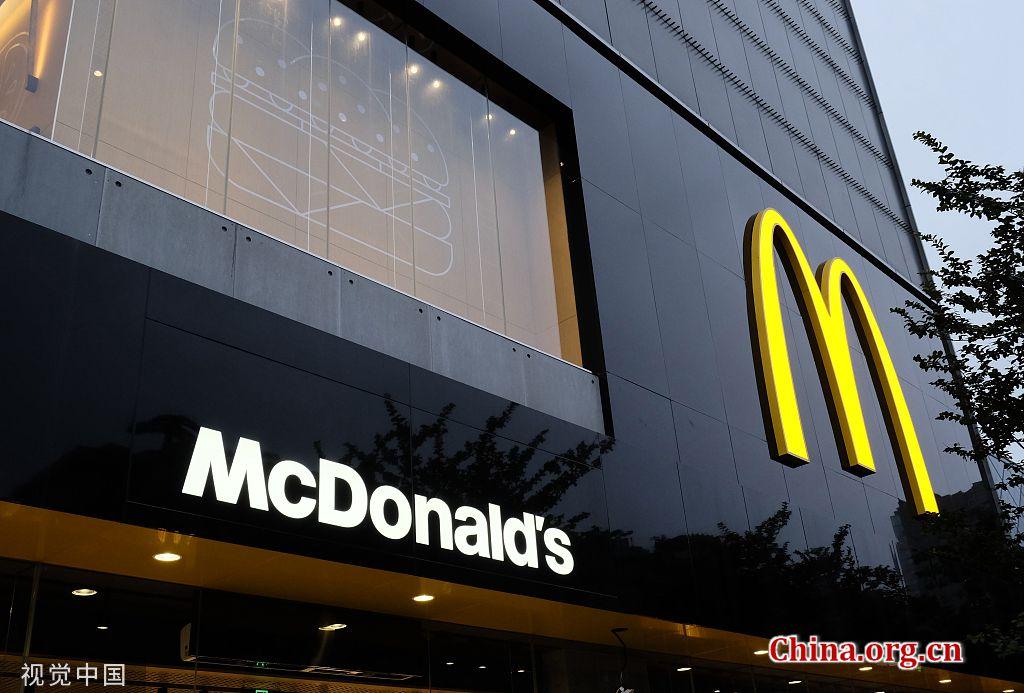McDonald's to up stake to 48% in nation, mulls more restaurants
 0 Comment(s)
0 Comment(s) Print
Print E-mail China Daily, November 22, 2023
E-mail China Daily, November 22, 2023

McDonald's [File photo: VCG]
Fast-food giant McDonald's Corp is increasing its minority stake substantially in its business in China to facilitate faster decision-making and exploit growth opportunities in its fastest-growing market.
McDonald's on Monday agreed to raise its stake from 20 percent to 48 percent. It will buy additional shares from global investment firm and its strategic partner Carlyle, which operates and manages McDonald's business in the Chinese mainland, Hong Kong and Macao.
Upon completion of the McDonald's-Carlyle transaction, the CITIC consortium will continue to own 52 percent. Post regulatory approvals, the deal is expected to close in the first quarter of 2024.
"Our strategic partnership with CITIC and Carlyle has been extremely successful in growing McDonald's presence in the region since it began. China is now our second-largest market; we've doubled our restaurants to more than 5,500 since 2017," said Chris Kempczinski, McDonald's president and chief executive officer.
"We believe there is no better time to simplify our structure, given the tremendous opportunity to capture increased demand and further benefit from our fastest-growing market's long-term potential."
In 2017, the chain sold control of its restaurants in the Chinese mainland, Hong Kong and Macao to Carlyle and CITIC for $2.1 billion.
The business in China has generated sales growth of more than 30 percent year-to-date since September 2019, said the company.
Jason Yu, general manager of Kantar Worldpanel China, a market research provider, said expansion in China and constantly enhanced digital marketing allowed the quick-service restaurant chain to enter more consumption scenarios, including deliveries. This, in turn, has propelled McDonald's revenue growth in recent years.
"The increased ownership of its China business means McDonald's will be able to make faster decisions to capture growing market demand in China by expanding its restaurant portfolio further in coming years."
The company said it is aiming to reach a goal of 10,000 or more restaurants by 2028 in the China market.
"That means the fast-food giant is entering more third- and fourth-tier cities, and is in need of innovating its store formats to meet diversified demand from consumers," Yu said.
McDonald's China has invented many new store formats, including the M2go shops, which offer contactless pickup lockers just by scanning a code. The format is designed to fit fast-paced lifestyles in urban China, where more than 70 percent of its business comes from deliveries and takeaways. It also introduced breakfast stalls in subway stations in Beijing and has aimed to continue to add more drive-through restaurants. There are more than 660 of them already in China.
Being present in more locations is a must for fast-food restaurants and for McDonald's to benchmark itself against both Chinese and foreign competitors, said Yu.
The catering sector has seen a strong recovery this year. From January to June, the domestic catering sector achieved sales revenues of 2.4 trillion yuan ($336.5 billion), up 21.4 percent year-on-year, according to China Catering Report 2023.
Domestic fast-food service chains have fueled their expansion quickly. The Fujian province-based Wallace, which mainly sells fried chicken burgers, has 20,000 stores across China. Another Fujian province-based Chinese burger seller Tastien has nearly 4,000 stores.
KFC China, a unit of Yum China, the largest restaurant group in the country by number of stores, had more than 9,200 stores in the country by March-end, and is boosting its presence aggressively by targeting lower-tier cities.
Yum China said in September it has more than 14,000 stores under its six brands, including Pizza Hut, and its target is to have 20,000 stores in China by 2026.





